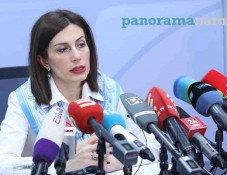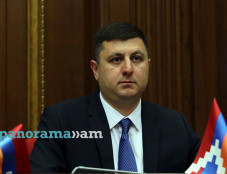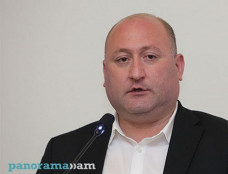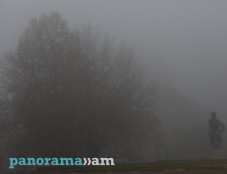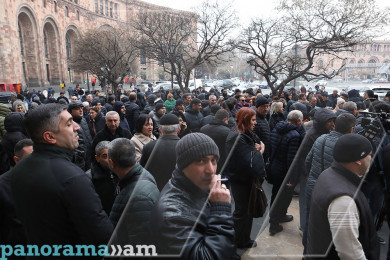
British Magazine: Election-rigging, torture of opponents, corruption marked family rule of both Heydar and his son
The Aliyev family has been having its way with the Azerbaijanis for decades. Heydar Aliyev, the family patriarch, was a Communist Party boss in the best of Stalinist traditions from the 1960s, and president of Azerbaijan from 1993 to 2003. His son, Ilham Aliyev came out of the security apparatus, which left him well positioned to take over from his father, the New Internationalist says.
“Good contacts in the security apparatus have proved more important than democratic credentials in much of former Soviet Asia. The countries of the Caucasus, where Azerbaijan is perched on the western shores of the Caspian Sea, must walk a thin line between Russia in the north and the Islamic world further south, while at the same time making nice with a Europe hungry for oil and gas, and a US empire obsessed with geo-political positioning. Little wonder the desires and needs of ordinary Azerbaijanis get lost in the shuffle,” the paper says.
“Election-rigging, torture of opponents, widespread corruption and ostentatious displays of power and wealth have marked the family rule of both Heydar (who died in 2003) and his son,” the magazine writes. Ilham keeps on top of things today with a slight democratic veneer for foreign consumption but the name of the game remains the same – autocratic self-enrichment by a narrow ruling circle. Transparency International rates Azerbaijan as the sixth most corrupt country in the world.
“The name of the beneficent Aliyevs is everywhere. If you are lucky enough to fly to the country’s capital, Baku (a fine old city made prosperous by petro-dollars), you get to land at Heydar Aliyev International Airport. While in town you can attend a seminar at the Heydar Aliyev Heritage Research Center. Then perhaps a visit to the beautiful $250-million Heydar Aliyev Cultural Center. You get the idea,” the author says.
According to the author there is no need to go all the way to Baku to pay homage to the dead dictator. The statues that are popping up in capitals all over the world – Cairo, Belgrade, Mexico City – have locals scratching their heads. “Who is this guy, anyway?” wonders the author.
“Like so many oil-rich places, Azerbaijanis find oil a mixed blessing. It means a high per-capita income and great potential, if equitable development policies were in place. But in practice it has meant a petro-state with all the trimmings: kleptocracy, inequality, boss-type politics and environmental degradation,” the article says.
According to the article At just over $5,000, the per-capita income is high for the region, but there is much rural poverty beyond the glitz of Baku and a large refugee problem (set officially at over 600,000) – mostly as a result of the war with neighboring Armenia over the disputed territory of Nagorno-Karabakh.
Ilham’s rule, despite going through the motions of democracy, has been marked by the absolute repression of anyone calling for the real thing. Opposition parties have consistently failed to gain any representation at all running against Aliyev’s New Azerbaijan Party and his 85-per-cent-plus votes in presidential elections are typical dictator-style numbers. When the Arab Spring spilled over into Azerbaijan there were no concessions from Ilham’s government: just a major clampdown, with some 400 protesters still languishing in prison. Freedom of the press and internet are now severely restricted and independent journalists are subject to beatings, imprisonment and blackmail.
The article also notes that the Aliyevs have always been cunning players of the nationalist card. In September 2012 Ilham officially pardoned Lieutenant Ramil Safarov, who had been convicted of murdering a sleeping Armenian soldier on a 2004 NATO-sponsored language course in Hungary. “Ilham got the Hungarians to send him home to serve out the rest of his sentence and promptly granted him not only his freedom but a promotion to Army Major, back pay and a new flat. Azerbaijani nationalists were ecstatic, Armenians outraged and the Hungarian government embarrassed over rumours of a large loan of Azerbaijani oil money,” New Internationalist says.
Newsfeed
Videos








